HTC One M9 vs HTC One M8
What a difference a year makes
Camera
The camera in the HTC One M8 was controversial at best, with its low-light busting 4MP sensor, so it's no wonder HTC has decided to change things up for the One M9. There's a 20MP sensor on the back, while round the front there's a 4 UltraPixel snapper.
Those UltraPixels are bigger than standard megapixels and therefore allow more light in, which in turn leads to improved low-light performance, which could be handy when taking a selfie in poor lighting.
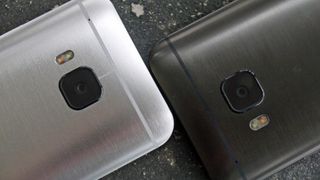
The back camera meanwhile has had a huge jump in megapixels, so expect some of the sharpest, most detailed pictures that an HTC handset has ever allowed for.
The HTC One M8 put its UltraPixels front and centre, or maybe that should be rear and centre, since it has a 4MP camera on the back, with all the same benefits as the UltraPixel snapper on the One M9.
Plus it's a Duo Camera setup with a second sensor allowing you to change the focus of a shot after taking it. It can rapidly fire off in-focus photos, but don't expect them to be as detailed as those taken by the HTC One M9.
It has a 5MP front-facing camera, so more megapixels than the M9's front-facing snapper, but they're just normal megapixels, not UltraPixels.
Battery
The HTC One M9 has a 2800 mAh juice pack, which is a small upgrade over the 2600 mAh battery in the HTC One M8.
Get daily insight, inspiration and deals in your inbox
Get the hottest deals available in your inbox plus news, reviews, opinion, analysis and more from the TechRadar team.
That might sound a bit worrying given the more powerful processor in the HTC One M9, but we're not too concerned.
Screens tend to be the biggest drain but the two phones have displays of the same size and resolution and while there is more power in the One M9 its processor should also be more efficient, so we're hopeful that if anything the M9 should actually have superior battery life.
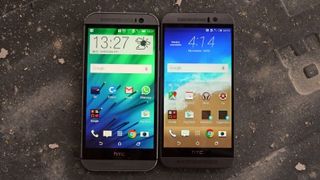
That wouldn't be bad going at all, given that the HTC One M8 is no slouch in the battery department, as it can hold up for around two days of moderate use.
Key features
The HTC One M9 and HTC One M8 mostly have the same key features. They're both utterly gorgeous handsets and they both have BoomSound speakers for impressive audio without headphones, though the One M9 should be the better of the two in that area thanks to the addition of Dolby Audio Surround.
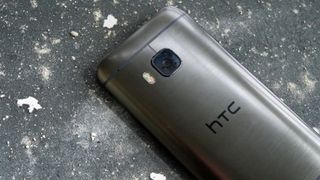
The camera is a key feature of both too, but their approaches are different. The HTC One M8 has a secondary depth sensor allowing you to refocus images. It's also bet big on UltraPixels, allowing its main snapper to deliver impressive low light performance.
The HTC One M9 meanwhile has relegated last year's rear camera to selfie duties and put a more conventional 20MP sensor around the back.
BlinkFeed is another big HTC feature found on both phones, allowing you to view news and social network updates all on a single screen.
But HTC has added some new features to the One M9, including a theme maker, which lets you pull colours from pictures you choose to make a custom colour palette.
Verdict
The HTC One M9 is all about refinements. The phone has been given an obligatory power boost, improvements to BoomSound, a larger battery and a change of focus on the camera.
The design is similar to the One M8, but tweaked enough to help it stand out and the screen has been kept the same size and resolution.
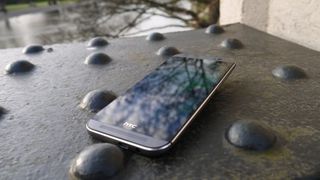
The fact that it is so similar to last year's model may disappoint some, but HTC has made big changes to the camera, which was the only aspect of the One M9 that really had a mixed reception, while everything else seems at least as good as it ever was.
The HTC One M8 is still just as gorgeous as ever and doesn't feel a million miles from the HTC One M9, despite the improvements HTC has made in the last year.
That, coupled with a lower price tag, means it's still a very relevant phone for anyone who wants something that looks like a current flagship without quite spending flagship money.
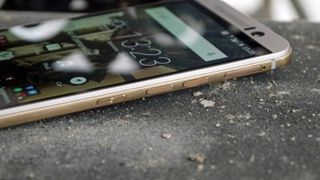
The duo lens, low-light-friendly camera on the HTC One M8 also has its fans, so there are certainly still reasons to opt for it.
- There's plenty more to come at MWC 2015.
James is a freelance phones, tablets and wearables writer and sub-editor at TechRadar. He has a love for everything ‘smart’, from watches to lights, and can often be found arguing with AI assistants or drowning in the latest apps. James also contributes to 3G.co.uk, 4G.co.uk and 5G.co.uk and has written for T3, Digital Camera World, Clarity Media and others, with work on the web, in print and on TV.

This Game Boy-styled MagSafe stand just tickled my retro-gaming synapse – now all I need is a matching controller for Nintendo emulators

AI Explorer could revolutionize Windows 11, but can your PC run it? Here's how to check

Netflix's Wednesday season 2 cast clicks into gear with Westworld star addition as Apple's Neuromancer series finds its lead
Most Popular


